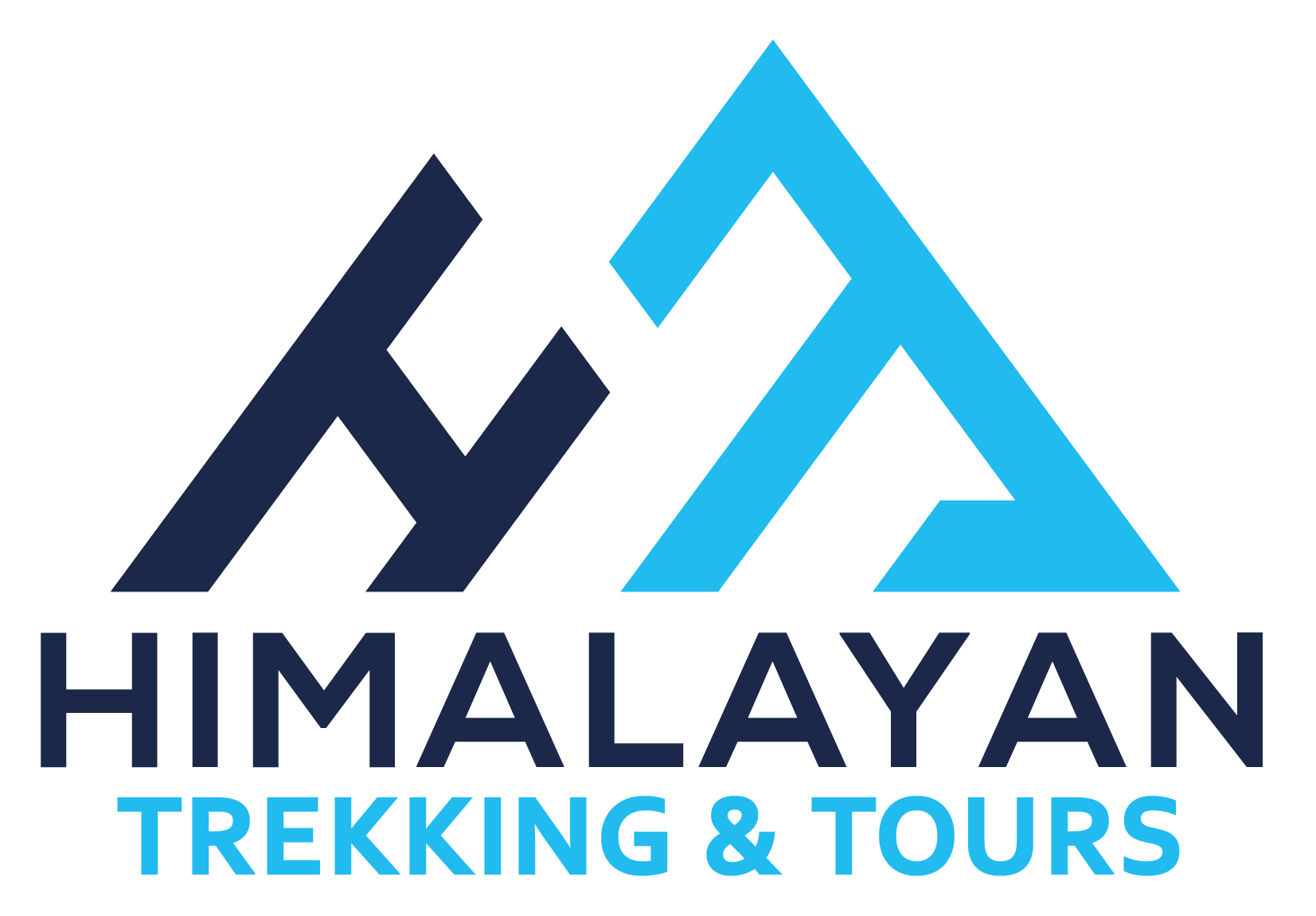Table of Contents
Nepal, a beautiful country in the Himalayas, has amazing trekking routes that people from all over the world love to explore. The landscapes are diverse, and the culture is rich, making it a perfect place for anyone who loves nature and adventure. The towering peaks of the Himalayas add to its beauty and make it a dream destination for trekking enthusiasts.
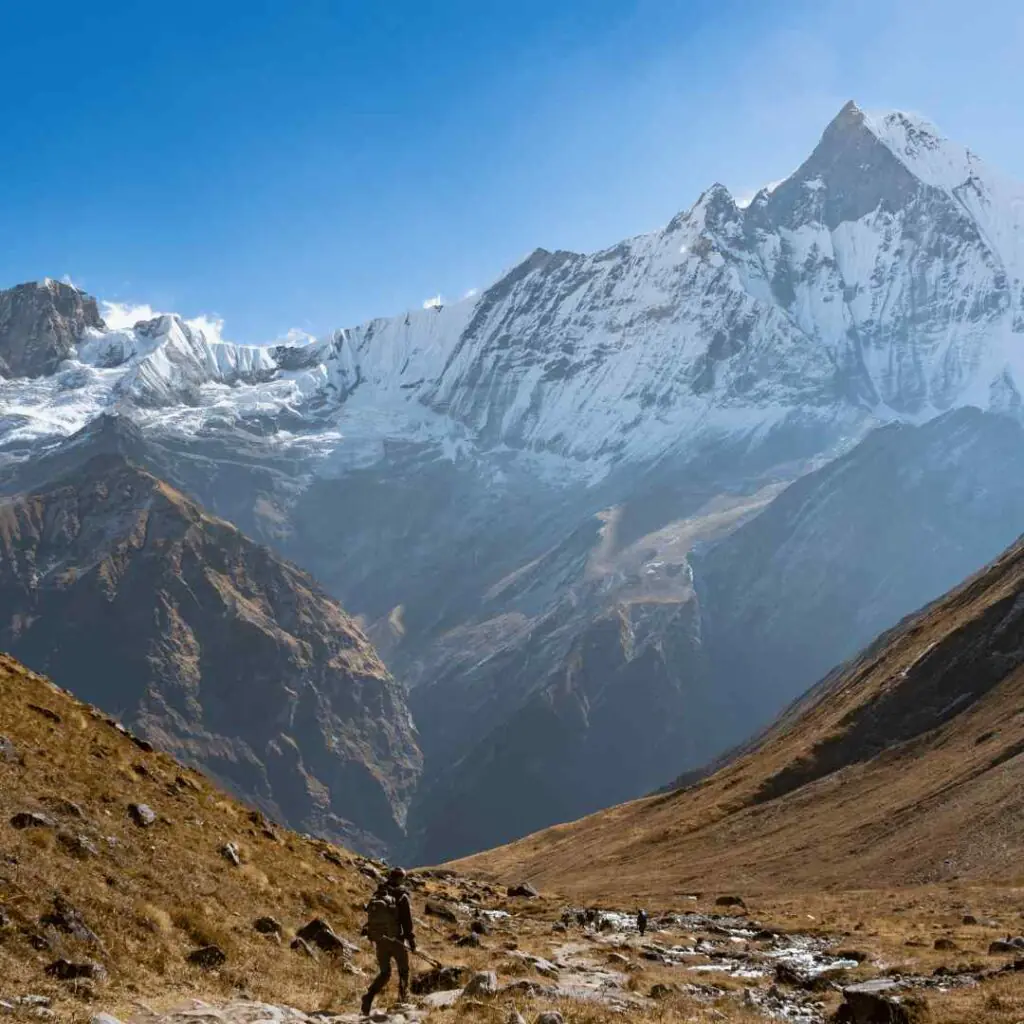
Key Points
- Geographical Splendor:
Nepal is home to eight of the world’s 14 highest peaks, including the iconic Mount Everest, making it a dream destination for trekkers and mountaineers.
The diverse terrain ranges from lush green valleys and terraced fields to alpine meadows and rugged mountain passes, offering a kaleidoscope of natural beauty.
- Cultural Richness:
Beyond the stunning landscapes, Nepal’s trekking trails weave through traditional villages, allowing trekkers to understand the rich cultural heritage of the region.
Encounter diverse ethnic communities, each with its own unique traditions, architecture, and lifestyle.
- Popular Trekking Regions:
Annapurna Region: Known for its diverse landscapes, including rhododendron forests, terraced fields, and panoramic mountain views.
Everest Region: Home to the world’s highest peak, Mount Everest, and other iconic summits like Lhotse and Nuptse.
Langtang Region: A less crowded but equally stunning area with alpine scenery and the chance to explore local Tamang and Sherpa cultures.
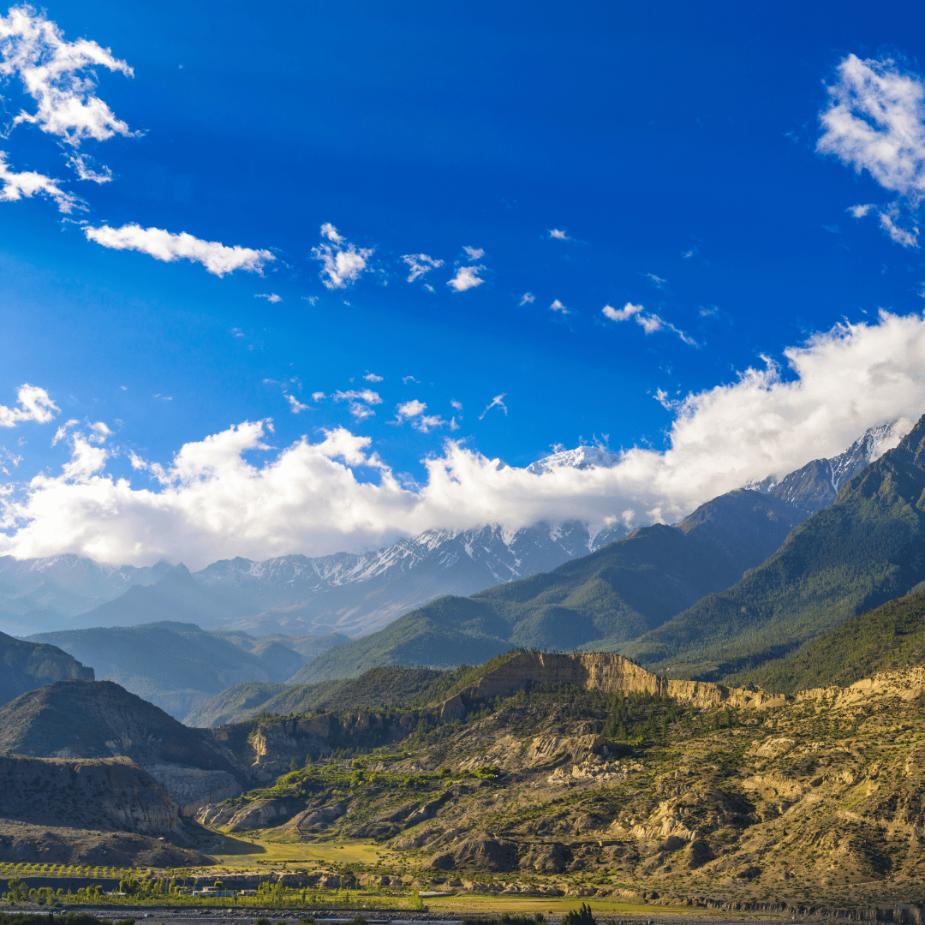

- Trekking Seasons:
Understanding the best times to trek, considering the distinct seasons in Nepal, is crucial. Spring (March to May) and autumn (September to November) are generally the most favored periods due to stable weather conditions.
- Diverse Trekking Options:
Nepal offers a variety of trekking experiences suitable for different fitness levels and preferences, ranging from shorter treks to challenging high-altitude adventures.
Treks can be teahouse-based, where accommodation is in local lodges, or camping-based, providing a more immersive wilderness experience.
- Challenges and Rewards:
Himalayan treks present both physical and mental challenges, including high altitudes, varying weather conditions, and rugged terrain.
The rewards, however, are immeasurable, from the sense of accomplishment at reaching high-altitude viewpoints to forging connections with the warm and welcoming local communities.
Going on a trek in the Himalayas of Nepal is more than just a long walk. It’s an amazing experience that will connect you with nature and show you some of the most incredible mountains in the world. We will now dive into the essential tips for your first Himalayan trek in Nepal.
Importance of Preparation for Your Himalayan Trek in Nepal
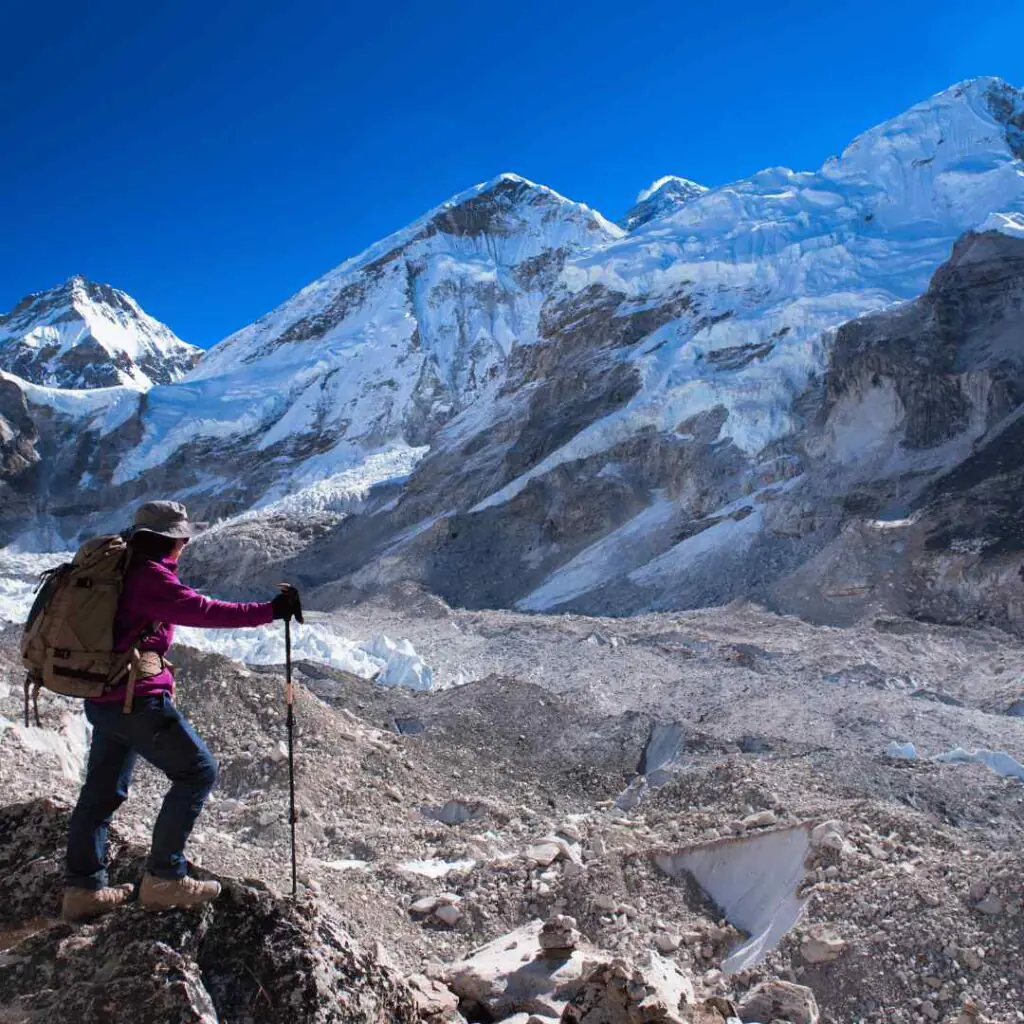
Trekking in the Himalayas is an exhilarating adventure, but success largely depends on meticulous preparation. Adequate preparation not only enhances your overall experience but also plays an important role in ensuring your safety and well-being throughout the journey.
- Physical Conditioning:
Explanation: The challenging terrain and high altitudes demand a certain level of physical fitness. Regular cardiovascular exercises, strength training, and endurance workouts help prepare your body for the strenuous demands of trekking in the Himalayas. This is one of the most essential tips for your first Himalayan trek in Nepal.
Why it Matters: A well-conditioned body copes better with the physical challenges of trekking, reducing the risk of fatigue and altitude-related illnesses.
- Mental Preparation:
Explanation: Trekking in the Himalayas involves both physical and mental endurance. Mental preparation is vital for overcoming obstacles, adapting to changing weather conditions, and dealing with the isolation of remote trails.
Why it Matters: Mental resilience is key to navigating unexpected challenges, ensuring a positive mindset throughout the trek.
- Researching the Trek:
Explanation: Each Himalayan trek is unique, with varying landscapes, altitudes, and difficulty levels. Researching the specific trek you plan to undertake helps you understand the challenges it holds. Thus, making it to the essential tips for your first Himalayan trek in Nepal.
Why it Matters: In-depth knowledge of the trek allows you to plan effectively, make informed decisions, and appreciate the natural and cultural aspects of the region. For this, you can completely reply upon the reliable trekking company in Nepal like us with 20 years of complete service towards this very line. We have managed to get trekkers dream of trekking in Nepal safely and conveniently. Our main priority has and will always be the safety of our trekkers.
- Understanding Altitude:
Explanation: The Himalayas feature high altitudes, and altitude sickness is a real concern. Understanding the effects of altitude, symptoms of altitude sickness, and the importance of acclimatization are crucial aspects of preparation. Thus, making it to the essential tips for your first Himalayan trek in Nepal.
Why it Matters: Proper acclimatization reduces the risk of altitude sickness, ensuring a safer and more enjoyable trek.
- Packing Wisely:
Explanation: Packing the right gear and clothing is essential for comfort and safety. Understanding the climate and terrain of the chosen trek helps in selecting appropriate equipment. This is also, the essential tips for your first Himalayan trek in Nepal.
Why it Matters: Well-packed gear lightens the physical load, prevents overpacking, and ensures you are prepared for varying weather conditions.
- Permit and Documentation:
Explanation: Many Himalayan treks require permits. Ensuring you have the necessary permits and documentation well in advance avoids last-minute hassles and allows for a smoother entry into the trekking region. We at Himalayan Trekking and Tours, one of the best travel agencies in Nepal with over 20 years of service till date will also arrange it for you. Thus, making it to the essential tips for your first Himalayan trek in Nepal.
Why it Matters: Failure to obtain required permits can lead to legal complications and disrupt your trekking plans.
- Cultural Sensitivity:
Explanation: The Himalayan region is rich in diverse cultures and traditions. Learning about and respecting local customs enhances your interaction with the local communities.
Why it Matters: Cultural sensitivity fosters positive relationships with locals, contributing to a more enriching and authentic trekking experience. Thus, making it to the essential tips for your first Himalayan trek in Nepal.
Packing Essentials for Your Himalayan Trek in Nepal

Clothing
- Base Layers:
Moisture-wicking T-shirts
Long-sleeved thermal tops
- Insulation:
Fleece jacket or pullover
Insulated down jacket for colder altitudes
- Outer Shell:
Waterproof and windproof jacket
Waterproof pants or trekking trousers
- Headgear:
Insulating hat or beanie
Sun hat with a wide brim
- Handwear:
Lightweight gloves
Insulated and waterproof gloves for higher altitudes
- Undergarments:
Moisture-wicking underwear
Sports bras (for women)
- Socks:
Moisture-wicking and breathable socks
Thick, insulated socks for colder days
- Gaiters:
Gaiters to protect against snow and debris
Footwear
- Hiking Boots:
Sturdy, waterproof hiking boots with ankle support
- Socks:
Multiple pairs of moisture-wicking and warm socks
- Camp Shoes:
Lightweight and comfortable camp shoes (sandals or sneakers)
- Trekking Poles:
Adjustable trekking poles for added stability
Backpack and Gear
- Backpack:
Comfortable and adjustable trekking backpack
Rain cover for the backpack
- Sleeping Bag:
Lightweight and compact sleeping bag suitable for the temperatures
- Tent (if camping):
Lightweight and weather-resistant tent
- Sleeping Pad:
Insulating sleeping pad for added comfort and warmth
- Headlamp/Flashlight:
Headlamp with extra batteries
Compact flashlight as a backup
- Water Bottles and Purification:
Insulated water bottles
Water purification tablets or a portable water filter
- Snacks:
High-energy snacks (nuts, energy bars) for quick boosts
- Navigation Tools:
Map and compass
GPS device or smartphone with offline maps
- First Aid Kit:
Basic first aid supplies, including blister treatment
- Toiletries:
Biodegradable soap, toothbrush, toothpaste, and other personal hygiene items
- Multi-tool or Knife:
Compact and versatile tool for various needs
- Sun Protection:
Sunscreen with high SPF
Sunglasses with UV protection
- Camera and Electronics:
Camera or smartphone for capturing memories
Portable charger or solar charger
- Duct Tape and Repair Kits:
Duct tape for quick gear fixes
Repair kits for equipment and clothing
- Document Holder:
Waterproof document holder for permits and important papers
Remember to adjust your packing list based on the specific requirements of your trek, the season, and the altitude. It is important to strike a balance between having all the essentials and keeping your backpack lightweight for a more enjoyable trekking experience.
Accommodation on the Trail at Himalayan trek in Nepal
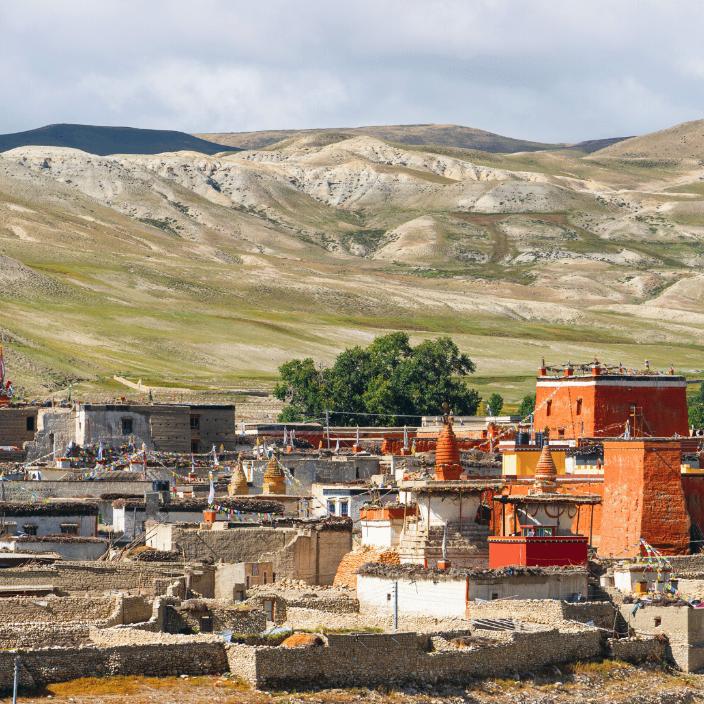


When you go on a Himalayan trek in Nepal for the first time, it is important to think about where you will stay along the way. Thus, making it to the essential tips for your first Himalayan trek in Nepal. These are choices- Teahouses and Lodges.
- Features of Teahouses:
Basic Rooms: Teahouses offer simple, yet cozy rooms with the essentials—beds, blankets, and sometimes heating.
Common Dining Areas: Teahouses have communal dining spaces where trekkers can enjoy local and international cuisine.
Social Atmosphere: Staying in teahouses provides an opportunity to interact with fellow trekkers, creating a sense of community.
- Features of Lodges:
Upgraded Facilities: Lodges often offer more amenities than teahouses, including attached bathrooms and hot showers.
Larger Rooms: Rooms in lodges are generally more spacious and may have additional furnishings.
Restaurant Services: Some lodges boast well-equipped restaurants serving a variety of dishes.
Food and Hydration as the essential tips for your first Himalayan trek in Nepal.
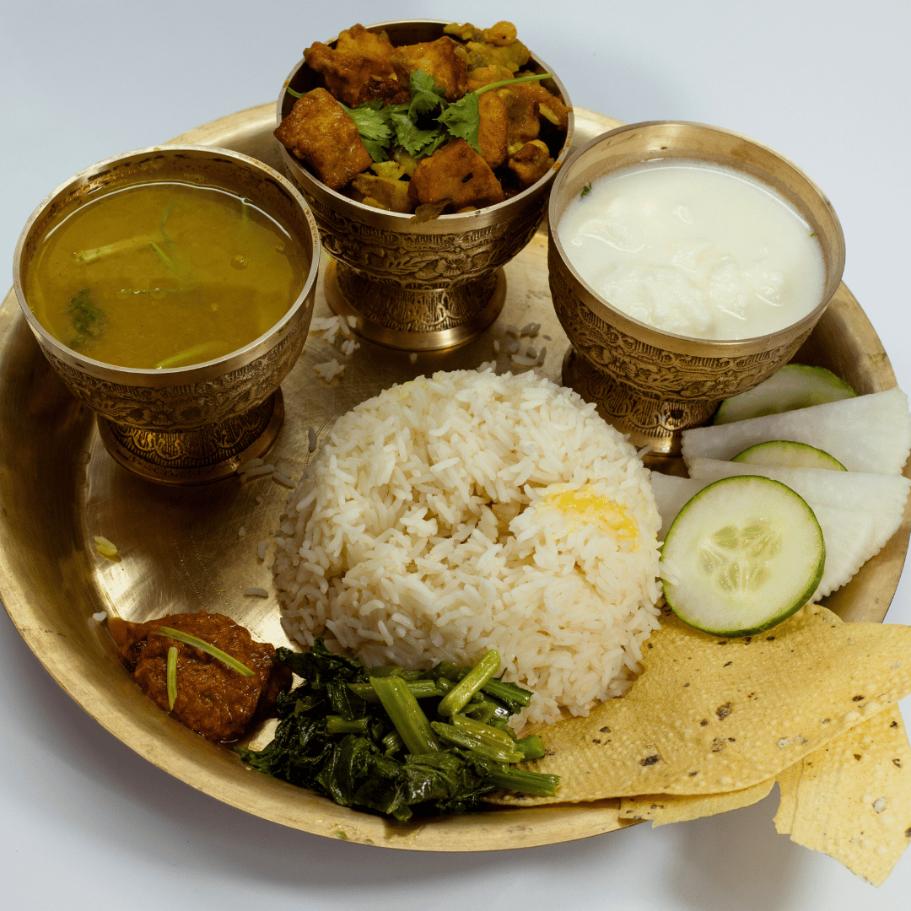
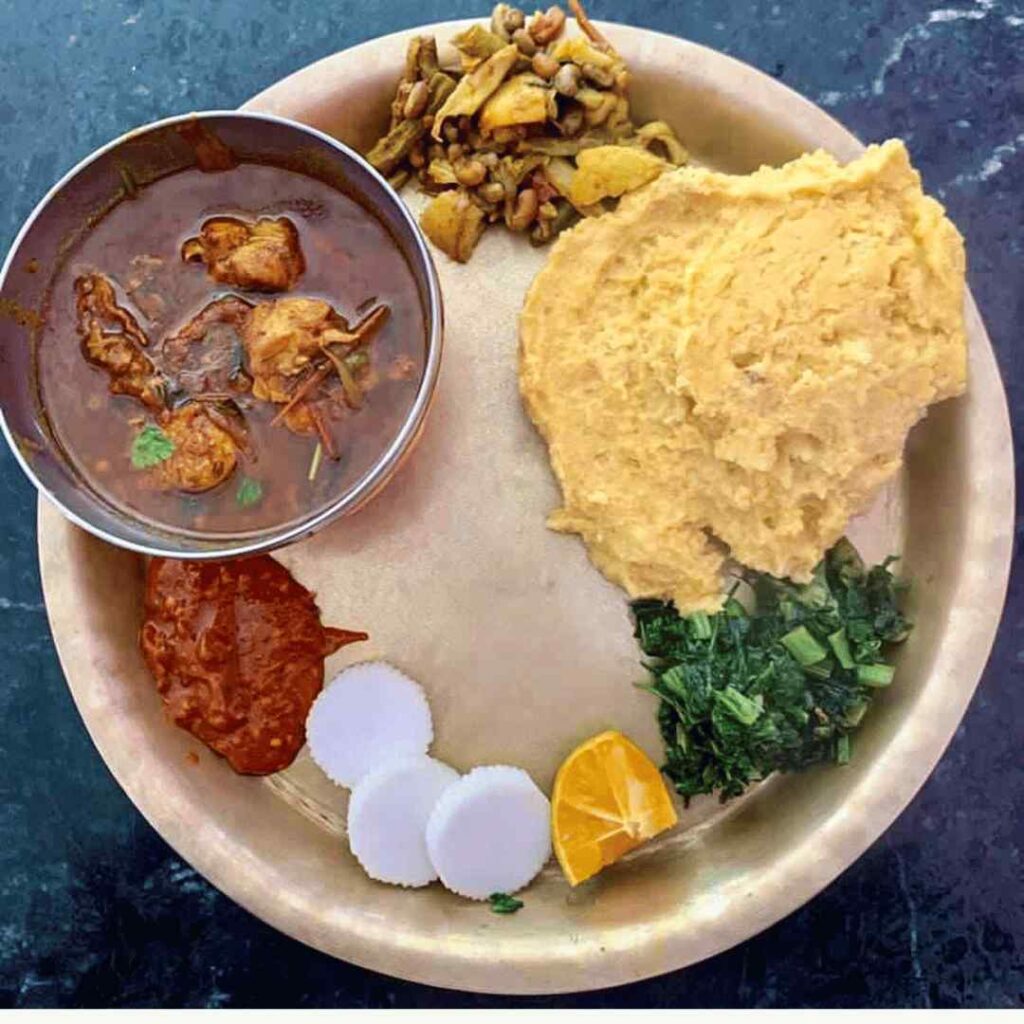
When you go on a trek in the beautiful Himalayas of Nepal, you will not only see amazing views, but you will also get to try some delicious food. Here’s what you can look forward to eating and drinking while you’re on your trek which is yet another essential tips for your first Himalayan trek in Nepal.
Local Cuisine and Food Options:
- Dal Bhat:
A traditional Nepali dish featuring lentil soup (dal) served with rice (bhat) and often accompanied by vegetable curries and pickles. Dal Bhat is a staple for many trekkers due to its energy-boosting properties.
- Momos:
Dumplings filled with a variety of ingredients, such as vegetables, meat, or cheese. These make for a delightful and portable snack during your trek.
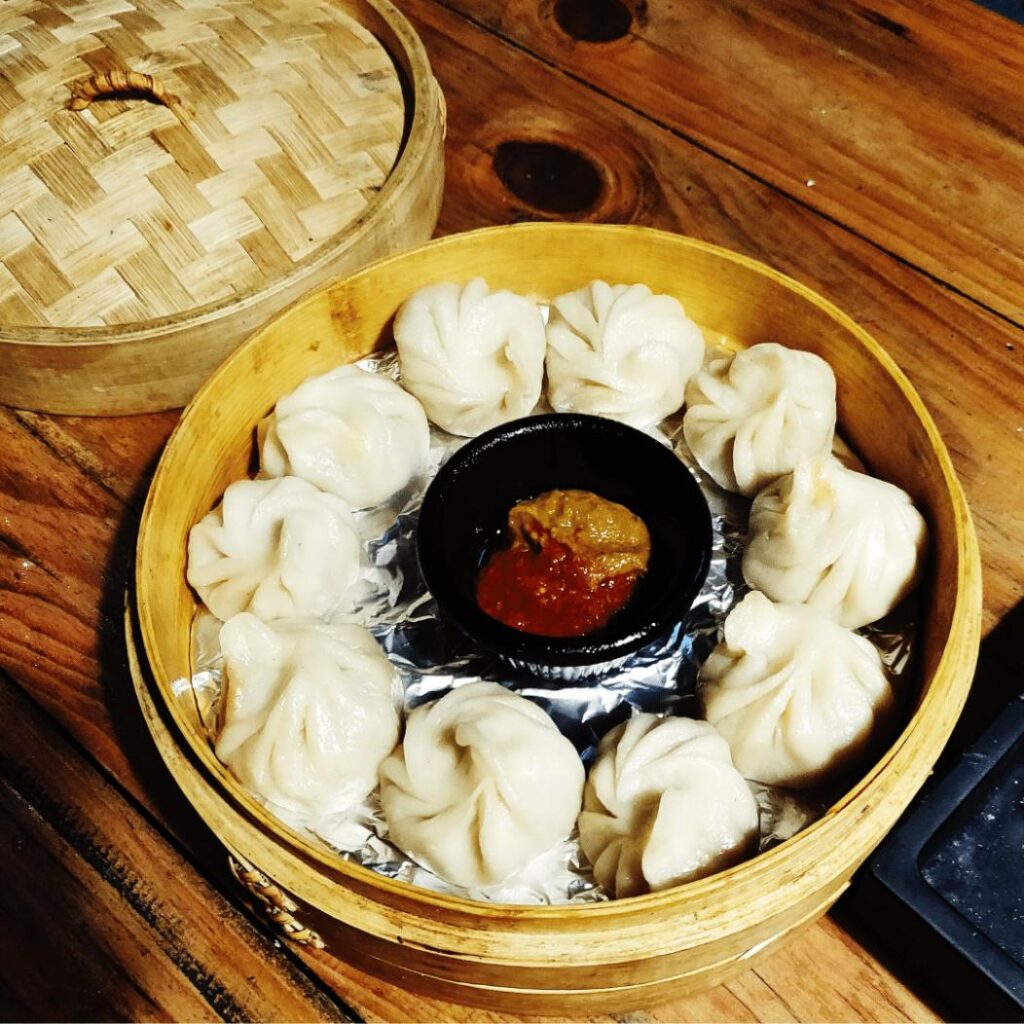
- Tsampa Porridge:
Made from roasted barley flour, this porridge is a hearty and nutritious breakfast option, especially in higher altitudes.
- Sherpa Stew:
A hearty stew made with meat, potatoes, and a rich broth, providing warmth and sustenance in the colder regions.
- Thukpa:
A noodle soup with vegetables or meat, flavored with various spices. It’s a comforting and filling dish, perfect for replenishing energy after a day of trekking.
- Local Snacks:
Enjoy locally produced snacks like roasted soybeans, nuts, and Tibetan bread to keep your energy levels up between meals.
Hydration at altitude:
- Tea and hot drinks:
Chai (tea) is a common beverage, and you will find a variety of herbal teas as well. Staying hydrated is crucial, and warm drinks also help combat the colder temperatures at higher altitudes.
- Stay Hydrated with Water:
It is essential to drink plenty of water throughout your trek to combat the effects of altitude. Carry a reusable water bottle and refill it at teahouses or natural water sources along the trail.
- Electrolyte Replenishment:
Consider carrying electrolyte tablets to add to your water, especially in higher altitudes where hydration is key to preventing altitude sickness.
- Local Beverages:
Try local beverages like chang (fermented millet beer) or tongba (fermented barley beer) to iunderstand the cultural aspects of the trek.
Tips for Trekkers
- Start hydrating early
Begin drinking water a day or two before your trek starts to ensure you are well-hydrated from the beginning.
- Purify water
While tap water in urban areas may be treated, it is advisable to purify water using purification tablets or a water filter during the trek.
- Moderation in rich foods
While the local cuisine is delicious, be mindful of your body’s reaction to richer foods. Moderation is key to maintaining energy levels.
- Enjoy the experience
Embrace the opportunity to try new dishes and flavors. Food is an integral part of the cultural journey, and each meal is a chance to connect with the local way of life.
Conclusion
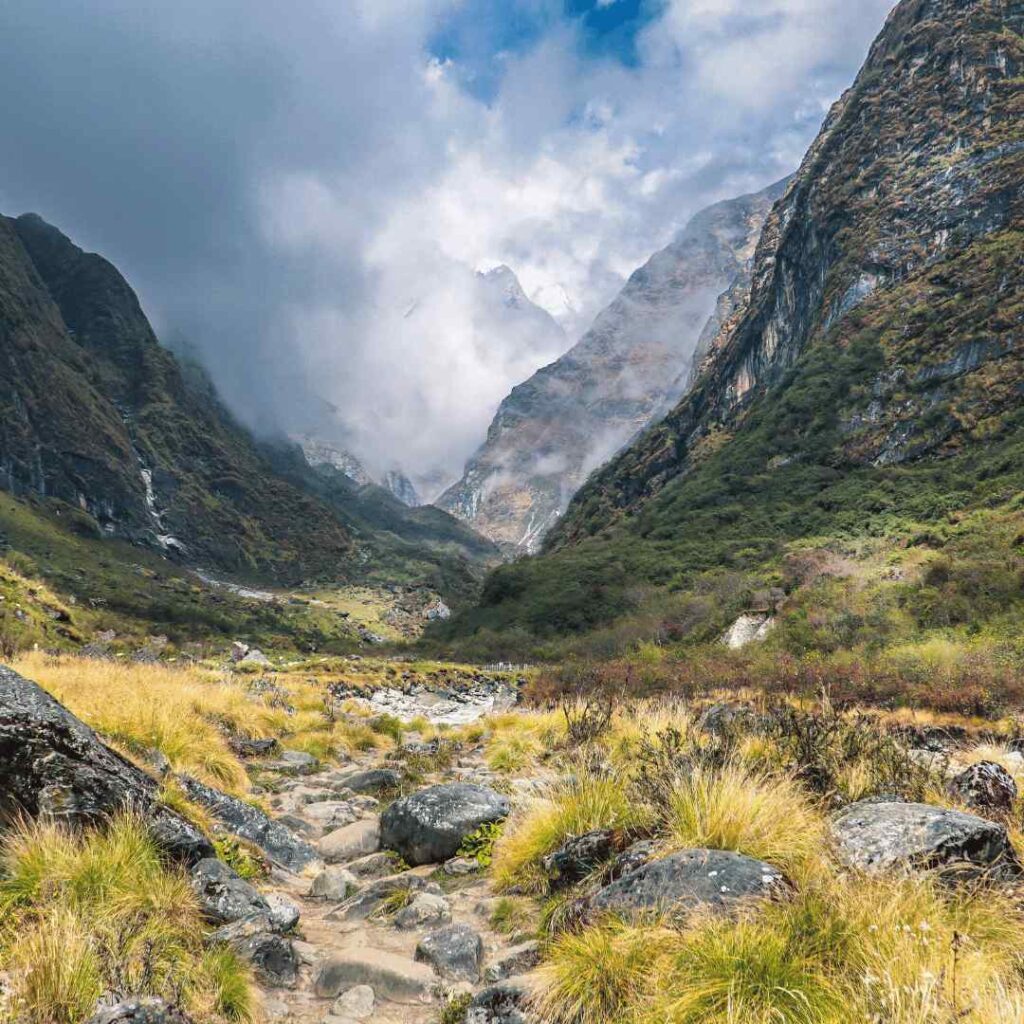
Trekking in the beautiful Himalayas of Nepal is more than just a physical adventure; it’s a journey that can touch your soul and reveal something extraordinary within you. As you walk along ancient trails decorated with prayer flags and breathe in the fresh, thin air at high altitudes, you’ll not only witness nature’s beauty but also connect with yourself in a special way.
In the peaceful mountain passes and cozy teahouses, you might discover a new appreciation for simplicity, and in the company of fellow trekkers and the kindness of the locals, you may feel the connections that bind us all together as humans.
The real magic is felt in the subtle changes that happen with each step you take. The Himalayas, with their breathtaking beauty, serve as both a testing ground and a haven for self-discovery. Amid the challenges and victories, the laughter with new friends, and the quiet moments of contemplation, you might uncover parts of yourself that have been waiting to be recognized.
The first Himalayan Trek in Nepal is about more than just a trek; it’s about surpassing the limits you have set for yourself.
Begin the adventure, enjoy the solitude, and let the Himalayas be not just a place to visit but a transformative sanctuary where you discover not only the world’s highest peaks but also the highest version of yourself.
Send an Enquiry
Error: Contact form not found.
© 2025 - Himalayan Trekking and Tours (P) Ltd. All Rights Reserved.
